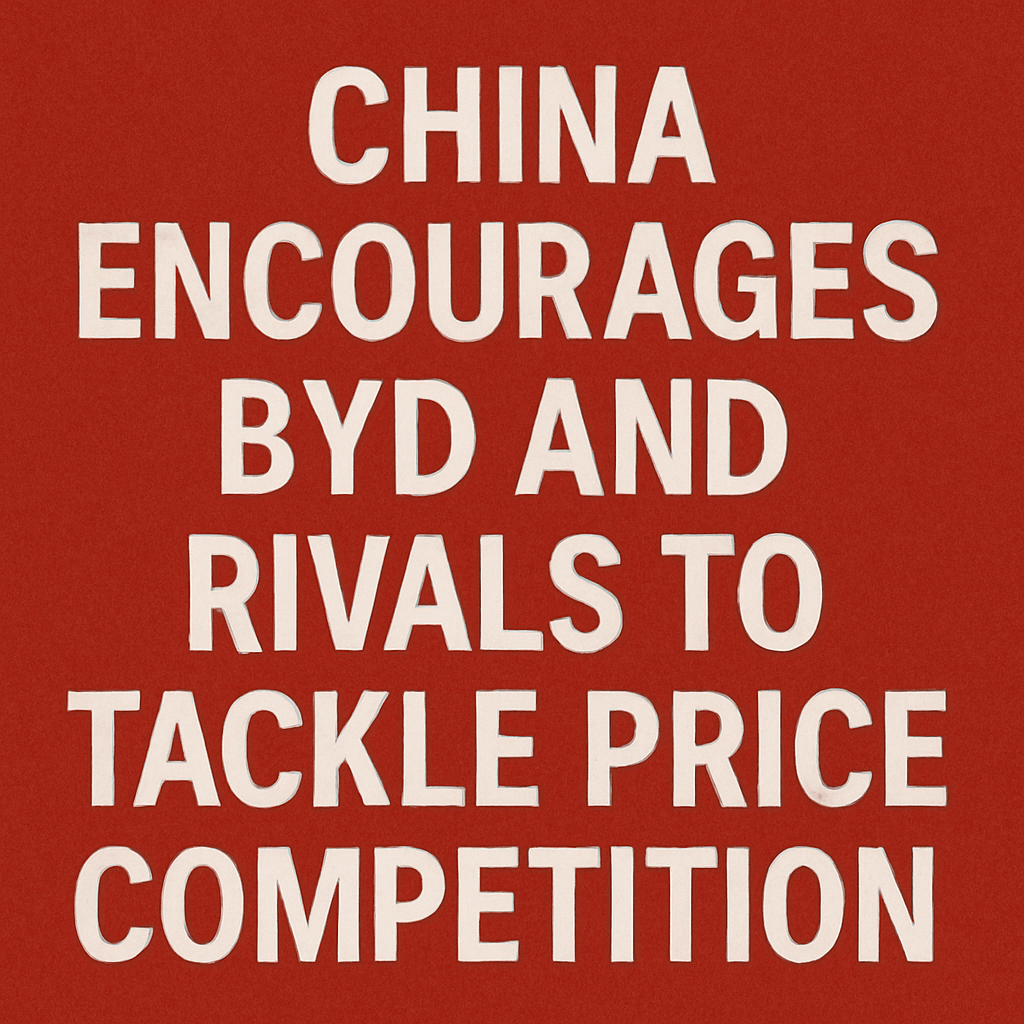China Encourages BYD and Rivals to Tackle Price Competition

Chinese officials summoned the heads of major electric vehicle (EV) manufacturers, including BYD Co., to Beijing earlier this week to discuss escalating concerns regarding a prolonged price war within the industry. This meeting, hosted by the Ministry of Industry and Information Technology (MIIT)—China’s primary market regulator and economic planning agency—represented a significant intervention by the government into operational matters impacting economic stability.
Industry Meeting Highlights
Attendees included senior executives from over a dozen companies, notably Zhejiang Geely Holding Group Co. and Xiaomi Corp., where officials reiterated the need for self-regulation among automakers. The discussions emphasized that companies should refrain from selling vehicles below production costs or offering extreme price cuts.
During the meeting, the officials delineated other pressing issues such as “zero-mileage” vehicles—new cars that, despite being recorded as sales, never reach the end consumer—as well as unpaid bills owed to suppliers that are creating a cash flow squeeze throughout the supply chain.
Regulatory Context
This gathering is notable as it marks a rare occasion for China’s regulatory bodies to jointly convene concerning pricing strategies within the automotive industry. The seriousness of this interplay illustrates significant scrutiny from China’s top leadership, coinciding with rising fears that the ongoing price war could jeopardize the viability of weaker industry players. However, while the meeting yielded verbal warnings, it stopped short of imposing mandatory directives, leaving open the question of potential repercussions should manufacturers ignore the advisories.
Consequences of the Price War
BYD’s recent aggressive pricing strategy, which included discounts of up to 34%, has drawn widespread criticism from both trade bodies and state media alike. In a strongly worded statement, the China Automobile Manufacturers Association highlighted that actions by certain firms have induced a new wave of “price war panic,” threatening to plunge the sector into a “vicious cycle” that jeopardizes supply chain security.
“Disorderly price wars intensify vicious competition, further compressing corporate profit margins,” the association stated.
Media outlets affiliated with the Communist Party have echoed these concerns, with recent reports from Xinhua and the People’s Daily advocating for a halt to deep discounts and the restoration of order in the automotive market. The People’s Daily cautioned that continued price cuts could lead to low-quality products tarnishing the “Made-in-China” reputation.
Underlying Economic Concerns
The ministry’s warnings come on the heels of increasing pressures on car manufacturers. Industry observers note that carmakers have resorted to seeking reductions in parts pricing from suppliers while also postponing invoice payments, creating a ripple effect of financial strain throughout the supply chain. This practice has raised questions about the overall debt burden on these manufacturers.
A recent report by GMT Research highlighted that BYD’s actual net debt is approximately 323 billion yuan (around $45 billion), significantly higher than the 27.7 billion yuan reported as of June 2024. This discrepancy largely arises due to delayed payments to suppliers, a practice potentially serving as a form of quasi-debt financing.
Future of the EV Market in China
As the largest EV market in the world, China faces critical decisions that could shape the industry’s future. Analysts suggest that resolving the financial duress within the sector will require a shift towards sustainable business practices and transparent pricing strategies. In light of the recent developments, the Ministry of Commerce has committed to collaborating with other governmental bodies to enhance guidance and foster an environment of fair competition that nurtures healthy market growth.
- Price Stabilization: Effective self-regulation in pricing could prevent the descent into a competitive quagmire.
- Quality Assurance: Counteracting the tendency towards low-quality production through industry standards is essential for preserving brand integrity.
- Sustainability: Building robust relationships with suppliers and stakeholders will benefit long-term viability and innovation.
As major players like BYD and Geely navigate these challenging waters, the outcomes of these discussions could have extensive ramifications across the global EV industry, influencing not only manufacturing practices but also consumer perceptions and the broader market landscape.
Source: fortune